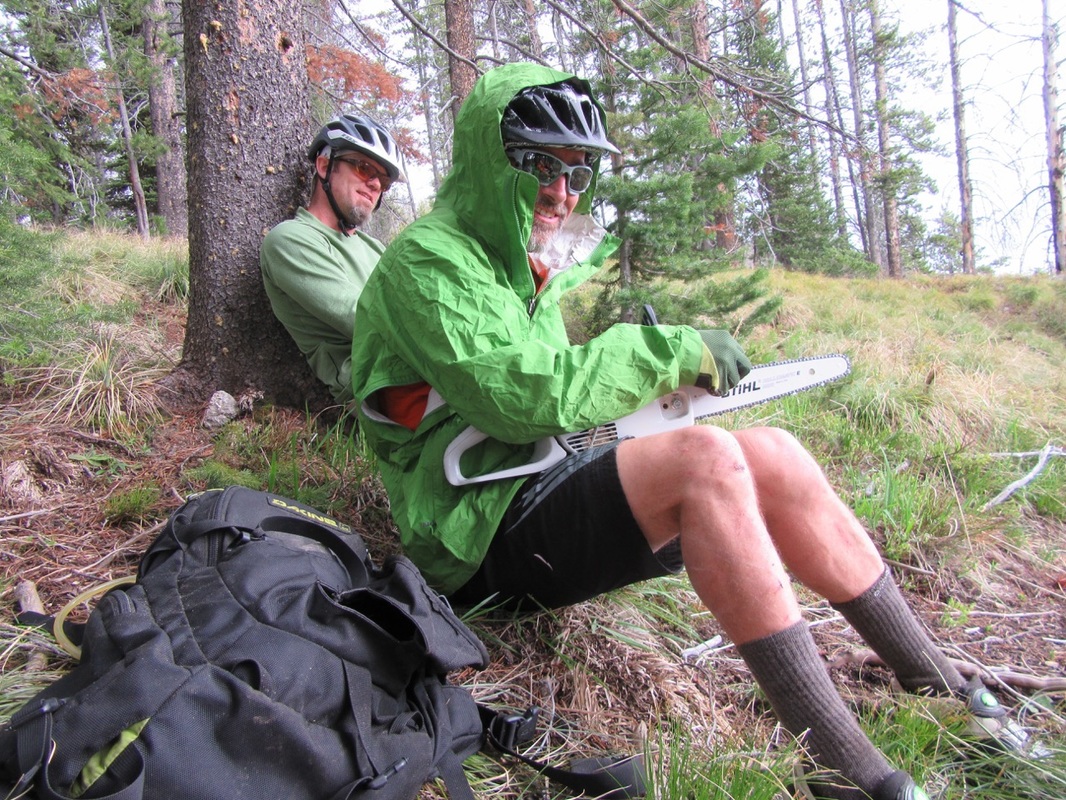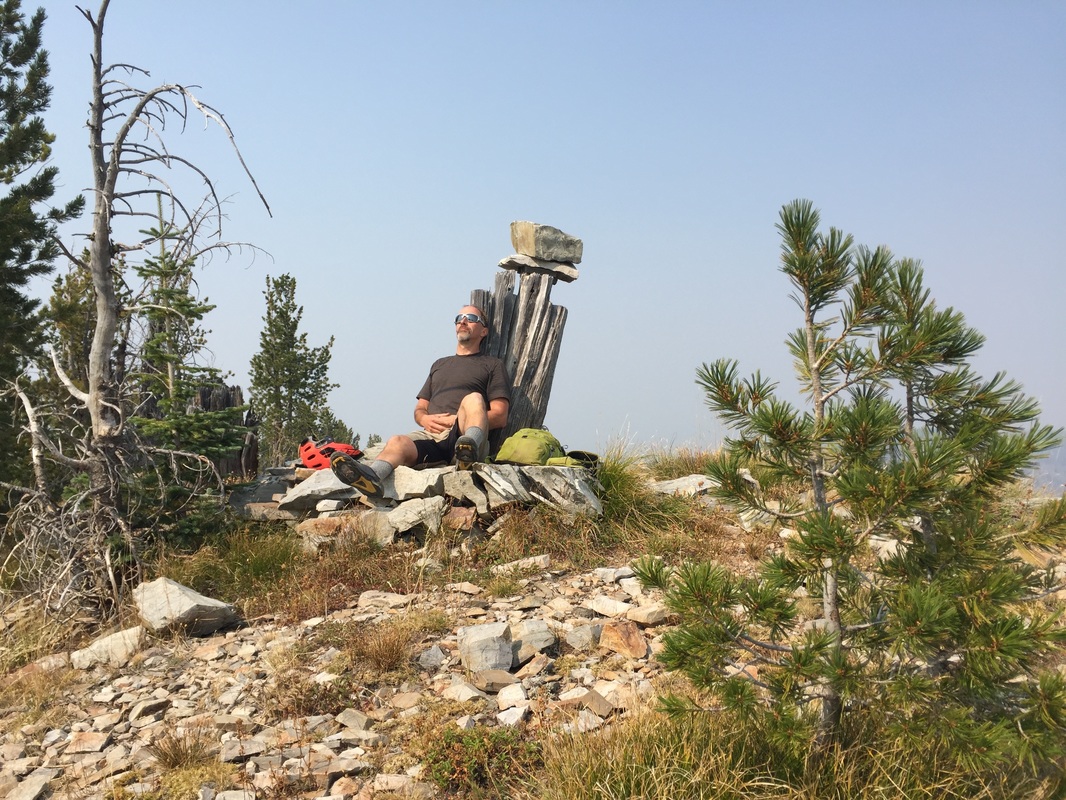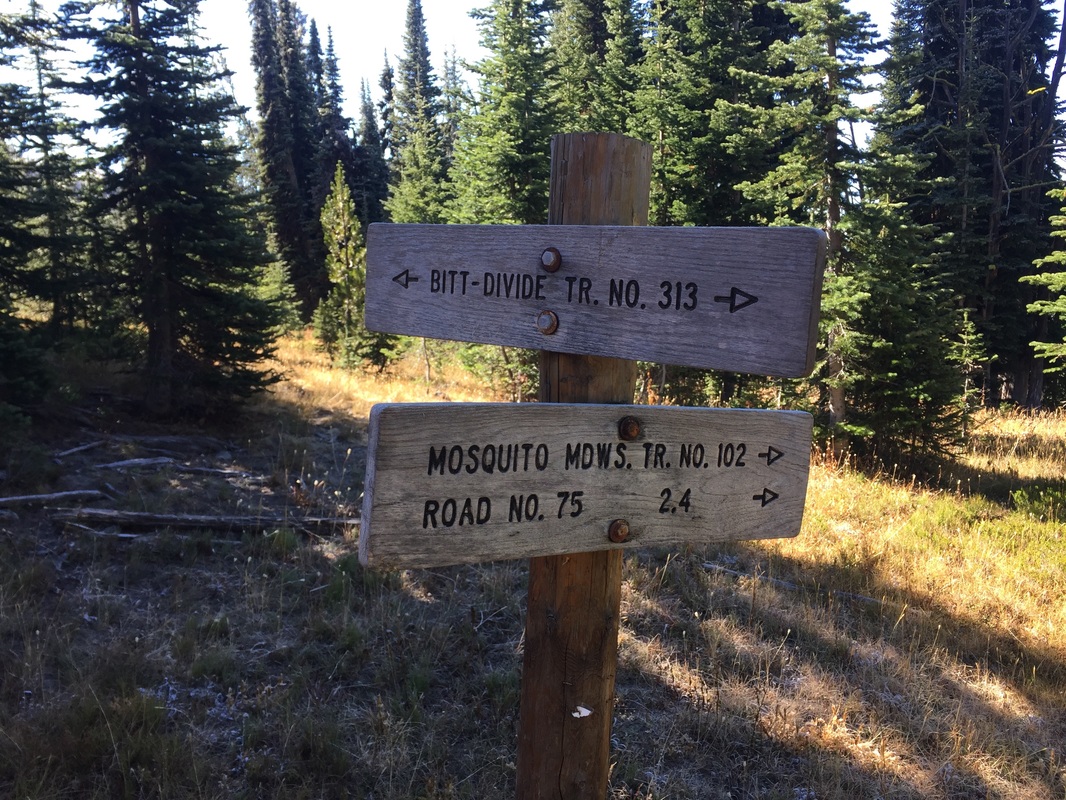|
Yes, I'm a mountain biker and in my role as president of the Bitterroot Backcountry Cyclists I advocate for issues important to mountain bikers such as trail access. For this I have been castigated as being a hardliner according to a recent blog post over at Montana Wilderness Association. Let me first say how much appreciate the work the MWA does protecting Montana's special places and working with the Montana High Divide to improve recreational opportunities for all quiet users. We also value our collaboration with partners such as the Bitterroot Backcountry Horsemen and the Bitterroot Cross Country Club. Even as I write this we are working with the MWA to find areas of common interest. Where we diverge is in how we visualize the role of mountain bikes in wild places. We believe that with appropriate management based on local conditions and following the guidelines established the Forest Service Publication, Wilderness Management, mountain bikes can be ridden in wilderness without sacrificing the feeling of the untrammeled wild and without interfering with other users desire for solitude and quiet. For more on the basis of our understanding of wilderness see here, here, here, here, here, here, and here. For more on the legislative history of the Wilderness Act and our understanding of the interpretation of "mechanized transport" you can go here. As much as we respect the MWA we take issue with several statements made by Mr. Gatchell in his blog post. "As with snowmobiles and four-wheelers, new technology has allowed bicyclists to penetrate deeper into wildlands than ever before and on trails that were designed primarily for traveling by foot and horseback." I'll allow that this this is technical true, but first why are mountain bikes being equated with snowmobiles and ATVs. Yes, bikes have improved over the years, yet unlike motorized users, the motor is the same; a person pedaling a bike. Being human powered, the improvements and ease of travel have been incremental comparable to other human powered activities such as skiers, hikers and pack rafters. This doesn't compare to the transformative effect more powerful engines have had on snowmobiles and ATVs. As far as trails being designed for foot and horseback, most of the trails we ride haven't been designed at all, but rather evolved from game trails, hunting trails and few are up to modern standards. As numerous studies have shown that hikers and bikers have similar impact on trails, and less than a horse; a poorly built trail will be susceptible to erosion regardless of the type of user, and points to the need for the type of trail stewardship mountain bikers excel at to make trails sustainable and thus minimize ecological impact. "A hardline segment of the mountain biking community now believe their entitled to continue riding or begin riding on these trails, even though they’re located in areas that have already been recommended by the Forest Service as wilderness." While the Forest Service has recommended these trails as wilderness, it should be made clear that these areas are not designated wilderness areas. As recommended wilderness the forest service is obliged to maintain their wilderness character; that does not mean managing the areas as wilderness. Forest fires will be fought. Chainsaws can be used for trail work. Game carts can used for hunting. I'm not sure "entitled" is the right word. After riding and maintaining trails for decades we feel a deep attachment to these trails. Mr. Gatchall mentions the joy he gets on after work rides on Helena's world-class trails. Here in the Bitterroot we may not have the same caliber or trails, but we do have rooty rocky trails that we head to after work for rejuvenation. Trails that we have never seen some hiking on. Never seen a horse on. Trails that are now being closed as part of the travel plan. I don't think it is entitled to expect that if these trails are to closed that the Forest Service point to some tangible impact we are having, maybe degrading the trails, disturbing wildlife, even user conflicts. Can the Forest Service point to any impacts in the Travel Plan? No. The best they can do is opine that some people don't like the idea of bikes on backcountry trails. Instead the trails are being closed in order to influence the political process, " ..allowing uses that do not conform to wilderness character creates a constituency that will have a strong propensity to oppose recommendation and any subsequent designation legislation. Management actions that create this operating environment will complicate the decision process for Forest Service managers and members of Congress." As a result the closure hundreds of miles of trails across Montana appears to be arbitrary and capricious, and subsequently all we are asking is for the Forest Service follow NEPA guideline and their own rules. We believe that performed properly, an analysis of mountain bike impact could find strategies using a minimum of regulation rather than the blunt instrument of categorical exclusions to maintain wilderness character. "A few months ago, some of these hardline mountain bikers, led by a group in California, formed Sustainable Trails Coalition (STC) to oppose all wilderness and wilderness study areas where they cannot ride." I'm sure the STC is capable of making their own response, but I'll point out that this misrepresents their goals. Rather their objective is to allow local land managers the leeway to allow mountain bikes on some wilderness trails. They would do this by returning the definition of "mechanized transport" to its original definition which required a non living power source for something to be considered "mechanized." "Like the Snowmobile Alliance for Western States (SAWS), STC aggressively advocates for a single-interest recreation identity that tends to focus on an individual experience over other outdoor interests and conservation needs." Giving land managers the option to manage mountain bikes similar to other quiet users in wilderness areas hardly gives mountain bikers an experience over other interests. Rather it enables managers to find a balance between all users using an understanding of local conditions and using a minimum of regulation rather than overly restrictive blanket bans. "Asking people to experience the gift of wild places on nature’s terms and at nature’s pace so that we don’t erode the wildness of these places has always presented challenges." I'll admit I'm not quite sure what nature's pace is. Usually statement like this imply that the only to enjoy wilderness is a slow and contemplative approach. But nature happens over many time scales from the centimeters a century for geologic time, inches a weeks for bear grass to grow, or close to highway speeds for a pronghorn. This expectation that there is only one way and one speed to enjoy the wild concerns me. Was Scott Jurek going to fast when he ran the Appalachian Trail? After all he wasn't self sufficient and relied a support crew. How about the speed record for running the 277 miles of the Grand Canyon being broken twice in three days earlier this year. These certainly aren't the ways I would want to experience either of these places, but does that give me the right to judge. They are having a different experience from mine. If someone on a speed run passed me while I did a three week float, should it somehow invalidate my adventure? I would hope not. By restricting the gift of wild places to a small window of possibility we are restricting ourselves only a small part of what we can discover. In many of the wild places I have seen them covered in snow laughing as I was plastered with face shots. I have climbed the walls climbing out of the valleys. I've hiked the trails and spent nights alone listening to fish breaking the surface, and I have ridden and carried my bike up trails and returned back down learning a new appreciation for rocks and well built switchbacks. Each time I learn something new.
"... wilderness advocates and mountain bikers do not need to be at odds. Montana is a big state, and we can expand mountain biking, restore quiet trails, and still have places where we can experience the untrammeled wild." I concur.. By engaging each other, I'm sure we will learn we have far in common than divides us in our loves for wild spaces and the last best place. While we may not agree on the this issue, I hope we can come accept that this is an issue that well intentioned people can valid differences of opinion. See you on the trail, hopefully with a pulsaki and shovel.
4 Comments
|
AuthorLance Pysher Archives
September 2017
CategoriesInstagram |



 RSS Feed
RSS Feed